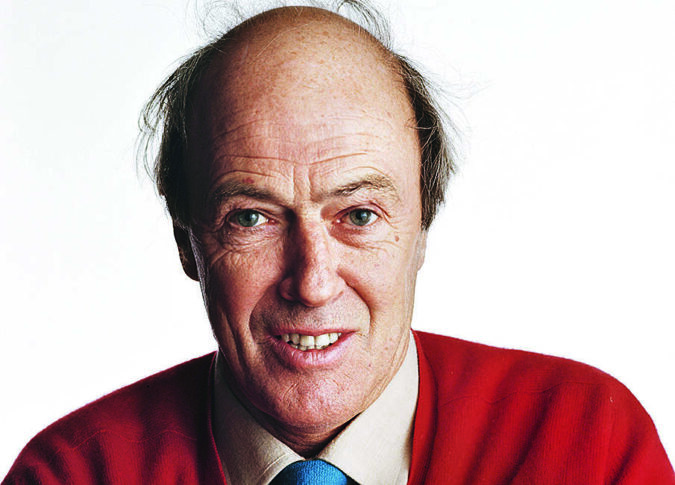LONDON: Critics are accusing the British publisher of Roald Dahl‘s classic children’s books of censorship after it removed colourful language from works such as “Charlie and the Chocolate Factory” and “Matilda” to make them more acceptable to modern readers.
A review of new editions of Dahl‘s books now available in bookstores shows that some passages relating to weight, mental health, gender and race were altered. The changes were made by Puffin Books, a division of Penguin Random House. Augustus Gloop, Charlie’s gluttonous antagonist in “Charlie and the Chocolate Factory”, is no longer “enormously fat,” just “enormous.” In the new edition of “Witches,” a supernatural female posing as an ordinary woman may be working as a “top scientist or running a business” instead of as a “cashier in a supermarket or typing letters for a businessman.”
The word “black” was removed from the description of the terrible tractors in 1970s “The Fabulous Mr Fox”. The machines are now simply “murderous, brutal-looking monsters.”
Booker Prize-winning author Salman Rushdie, who lived ived in hiding for years after Iran’s Grand Ayatollah Ruhollah Khomeini in 1989 issued a fatwa calling for his death because of the alleged blasphemy in his novel “The Satanic Verses” and was attacked last year, was among those who reacted angrily to the rewriting.
“Roald Dahl was no angel but this is absurd censorship,” Rushdie wrote on Twitter. “Puffin Books and the Dahl estate should be ashamed.” The changes to Dahl’s books come amid a growing trend for publishers to employ so-called “sensitivity readers” who work alongside editors to identify references to gender, race, weight, violence or mental health that might offend readers.
The Roald Dahl Story Company, which controls the rights to the books, said it worked with Puffin to review the texts because it wanted to ensure that “Dahl’s wonderful stories and characters continue to be enjoyed by all children today”. The language was reviewed in partnership with Inclusive Minds, a collective which is working to make children’s literature more inclusive and accessible. Any changes were “small and carefully considered”, the firm said. “His Dark Materials” author Philip Pullman took aim at the changes. “If Dahl offends us, let him go out of print,” he told BBC adding that millions of Dahl books with the original text would remain in circulation for many years whatever the changes to new editions.
Laura Hackett, deputy literary editor of Sunday Times newspaper, called the changes “botched surgery”. Even PM Rishi Sunak weighed in on the debate. “The PM agrees with the BFG that you shouldn’t gobblefunk around with words,” his spokesperson said. The expression – meaning to play around – is a reference to a line spoken by the big friendly giant in the book. Dahl’s books have sold more than 300 million copies. But he is also a controversial figure because of antisemitic comments made throughout his life. agencies
A review of new editions of Dahl‘s books now available in bookstores shows that some passages relating to weight, mental health, gender and race were altered. The changes were made by Puffin Books, a division of Penguin Random House. Augustus Gloop, Charlie’s gluttonous antagonist in “Charlie and the Chocolate Factory”, is no longer “enormously fat,” just “enormous.” In the new edition of “Witches,” a supernatural female posing as an ordinary woman may be working as a “top scientist or running a business” instead of as a “cashier in a supermarket or typing letters for a businessman.”
The word “black” was removed from the description of the terrible tractors in 1970s “The Fabulous Mr Fox”. The machines are now simply “murderous, brutal-looking monsters.”
Booker Prize-winning author Salman Rushdie, who lived ived in hiding for years after Iran’s Grand Ayatollah Ruhollah Khomeini in 1989 issued a fatwa calling for his death because of the alleged blasphemy in his novel “The Satanic Verses” and was attacked last year, was among those who reacted angrily to the rewriting.
“Roald Dahl was no angel but this is absurd censorship,” Rushdie wrote on Twitter. “Puffin Books and the Dahl estate should be ashamed.” The changes to Dahl’s books come amid a growing trend for publishers to employ so-called “sensitivity readers” who work alongside editors to identify references to gender, race, weight, violence or mental health that might offend readers.
The Roald Dahl Story Company, which controls the rights to the books, said it worked with Puffin to review the texts because it wanted to ensure that “Dahl’s wonderful stories and characters continue to be enjoyed by all children today”. The language was reviewed in partnership with Inclusive Minds, a collective which is working to make children’s literature more inclusive and accessible. Any changes were “small and carefully considered”, the firm said. “His Dark Materials” author Philip Pullman took aim at the changes. “If Dahl offends us, let him go out of print,” he told BBC adding that millions of Dahl books with the original text would remain in circulation for many years whatever the changes to new editions.
Laura Hackett, deputy literary editor of Sunday Times newspaper, called the changes “botched surgery”. Even PM Rishi Sunak weighed in on the debate. “The PM agrees with the BFG that you shouldn’t gobblefunk around with words,” his spokesperson said. The expression – meaning to play around – is a reference to a line spoken by the big friendly giant in the book. Dahl’s books have sold more than 300 million copies. But he is also a controversial figure because of antisemitic comments made throughout his life. agencies
